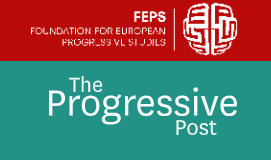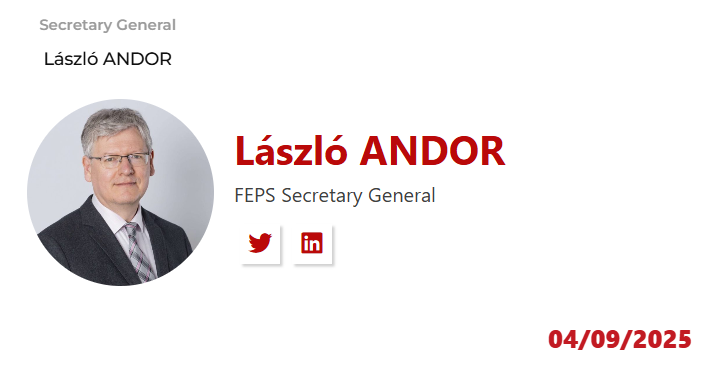Europe's aestas horribilis
 https://feps-europe.eu/europes-aestas-horribilis/
https://feps-europe.eu/europes-aestas-horribilis/
 Photo credits: NATO
Photo credits: NATO

This would have been the time for the EU to prove that ‘strategic autonomy’ is not an empty concept. That in the face of adversity, we can step up our game and, once united and energised, take the bull by the horns. The three tests the EU has faced were the trade debate with the United States, the launch of the new cycle of the Multiannual Financial Framework (MFF) and answering the calls of President Donald Trump regarding the end of the Russo-Ukrainian war. Nobody should pretend that the EU leadership has been facing an easy challenge. These were tests of strength, courage and cunning, reminiscent of the 12 labours of Heracles. But that is where the comparison ends. The events of this summer exposed our weakness at all levels, turning into the worst nightmare and awaiting a proper wake-up call.
First, European leaders – with the notable exception of Pedro Sánchez – accepted Trump’s crazy demand to drive up military expenditure to 5 per cent of the annual GDP, in the hope that the general tariff level could be limited to 10 per cent. But of course, Trump does not know mercy, and a 15 per cent tariff was imposed. Then the EU accepted this tariff with a smile on Ursula von der Leyen’s face in the hope that perhaps Trump would not walk away from the war in Ukraine. Shortly, but not surprisingly, Europeans had to witness Trump not only hosting Vladimir Putin in Alaska but also parroting his narrative about the ‘root causes’ of the war, and dropping the demand for a ceasefire, as well as the entire sanctions agenda.
During the press conference in Scotland, von der Leyen could not give a straight answer to the question on what exactly the Americans had made concessions, as the US had not made any, and demanded even more. The 15 per cent (and on some products, higher) tariff hurts, but, even more dramatically, the EU leadership failed to stand up for multilateralism in international trade and echoed Trump’s false narrative about ‘rebalancing’ instead. Besides, promises were made that European companies would ‘turbo charge’ investment in the United States, which contradicts the entire EU campaign originating from the Draghi Report, highlighting the need to fill the investment gap not in the US or elsewhere in Europe, but within the EU itself.
Considering investment, the EU’s key tool is the MFF, and, by mid-July, all eyes were on the Commission when the new proposal was unveiled for the upcoming two-year period. ‘Retreat camouflaged as innovation’ could have been the motto of this event. Von der Leyen remained true to herself, as in her second mandate, she tends to undo what she built in her first one. In 2020, in response to the Covid-19 crisis, there was a kind of budget revolution, resulting in a surge in EU fiscal capacity with the establishment of NextGenerationEU. Now, while nominally we speak about the largest ever MFF, the real value of key EU programmes is about to fall. The ill-conceived nationalisation (which would apply to both agricultural policy and cohesion) will undermine the MFF’s potential for funding European public goods.
snip


